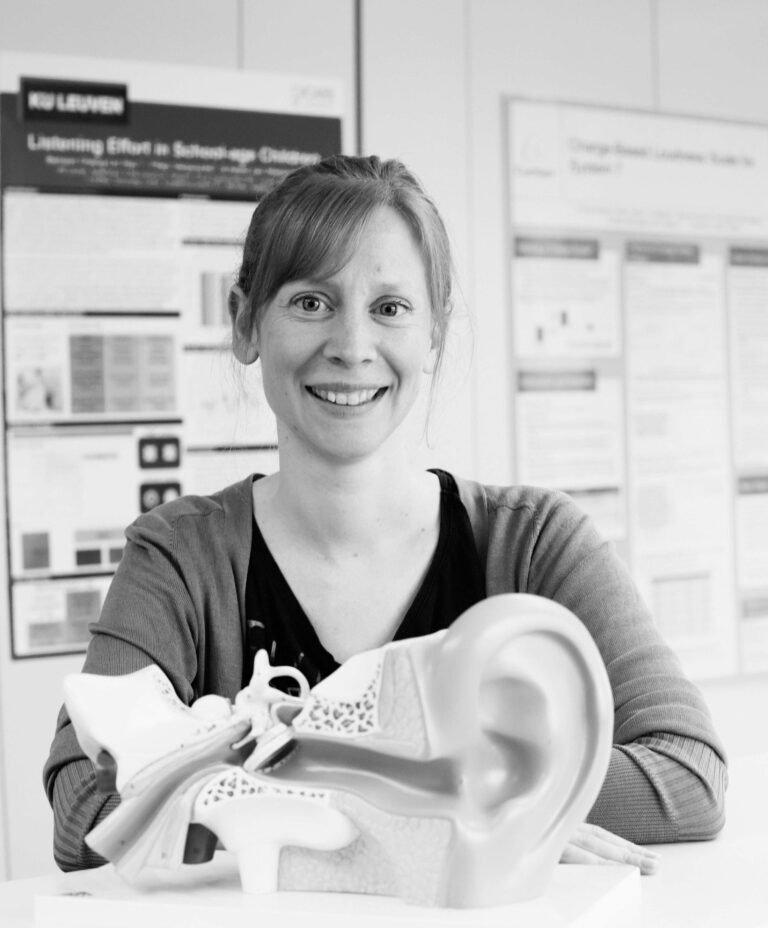Continuing our latest news post series Meet the PIs, today on the International Day of Women and Girls in Science, we are delighted to share an interview with one of the leading women in the MOSAICS network: Dr. Birgit Philips.
Based at Cochlear Ltd. and part of the project’s coordination team, Birgit is ‘the driving force’ of the network, as Dr. Filiep Vanpoucke said in his interview within the Meet the PIs series. Below she shares her thoughts on what this role has meant for her so far and her key learnings from collaborating in the MOSAICS team and guiding the MOSAICS ESRs through their research journeys.

The driving factor has always been the people affected by hearing impairments. [...] I am committed to actively listen to their stories, as they are living the experience of hearing impairment and are best placed to help us researchers understand what their needs and wants are to live a full life.
Birgit Philips
What is an aspect of hearing-related research that still fascinates you today as it did when you first encountered it? How both bottom-up (peripheral) and top-down (cortical) aspects play a role in speech understanding, especially in more challenging listening environments (like having a conversation in a restaurant).
Is this also what brought you into this field of science? If not, what was the driving factor for you? The driving factor has always been the people affected by hearing impairments: the cochlear implant recipients, and moreover their carers: spouses, friends, parents, …. I am committed to actively listen to their stories, as they are living the experience of hearing impairment and are best placed to help us (researchers) to understand what their needs and wants are to live a full life.
As a speech and language pathologist and audiologist, I love talking, however I learned asking the right questions and truly listening to the responses to be far more interesting (but also challenging).
What is your role in MOSAICS and what are your key responsibilities within the project? I’m beyond grateful being able to learn alongside the ESRs and support them both on a knowledge level and personal development level. Officially my role is being a co-supervisor for Nikki and Loes, however, I love interacting with all four of them in our regular Think Tanks. Also, next to Filiep, I organize the management boards, supervisory boards and training modules.
Are there any aspects of working within an MSCA EID that surprised you? This is a learning journey for both the ESRs and their supervisory team. I have been developing my leadership skills by having open and honest conversations with the ESRs about how I can serve their work. This was truly an aspect I didn’t consider as such upon embarking this MSCA adventure.
What is your goal for your ESR(s)? What is it that you want them to take away from this experience as part of MOSAICS? Getting a deeper and richer understanding of how they can serve people living with challenging hearing conditions. There is such an unmet need in serving this population, and researchers and professionals coming from a diverse background can play a role in order to move the needle.
What is the biggest challenge you face as a supervisor, and what has it taught you?
Listening is more important then speaking 
If you could give one key piece of advice to an aspiring early-career researcher in your field, what would that be? Be curious, bold and kind.
From your perspective, what skills are important for starting a career in the industry sector? Have a growth mindset, it is the best mindset to collaborate with a diverse team, in order to deliver products and services that truly serve recipients and their communication partners.
If you could collaborate with any other field of science, which would interest you the most? Psychology – we need to unravel the impact of motivation and social support a lot better.
We warmly thank Birgit for sharing her thoughts in this interview and for being a great #WomenInScience role model. Stay tuned for the next piece in the series!
